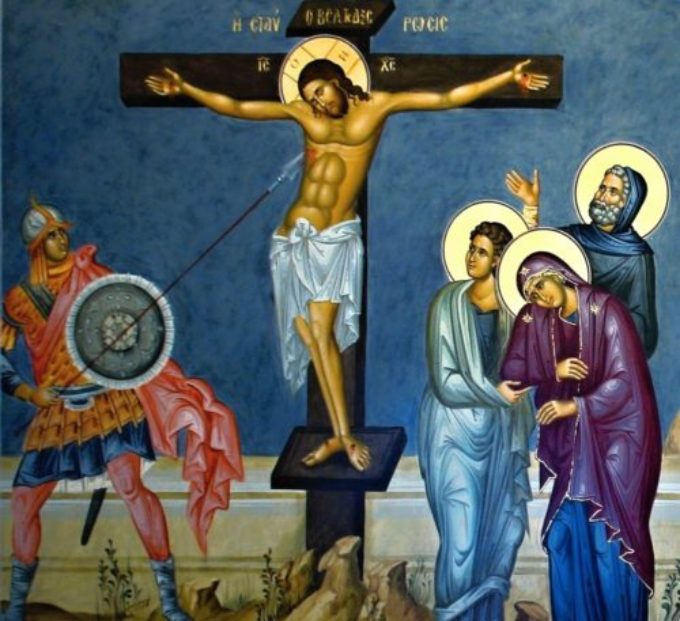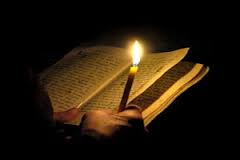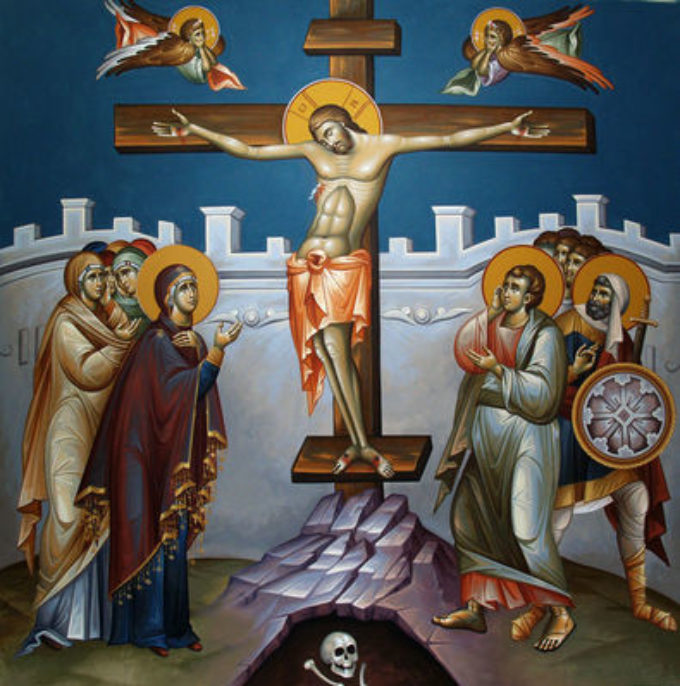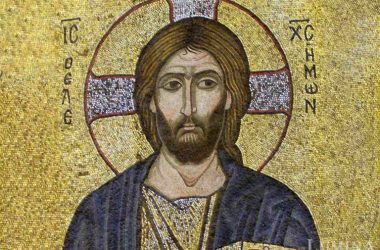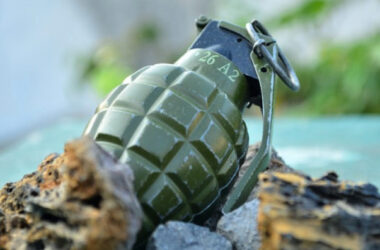Archimandrite Athanasios Mitilineos
For today’s topic I will make appeal to your love to have some patience, although I know that I always wear you down. But you should know that sometimes things are reached in such a way that we have to apply some effort.
You shouldn’t expect that the Word of God would be so easily and pleasantly understood. Sometimes we have to apply effort to understand it. I don’t hide from you, my dears, that in order to understand something sometimes, and this happens quite often, I read and read again, I pray and pray again, I read all over again, I go back to the text over and over again, tarrying upon it so that I could understand something. Therefore, as you see, the Word of God must be studied carefully and conquered by force. So don’t grumble if today the Word of God will be more profound and difficult.
Christ’s death on the Cross is a mystery. It has not only a moral meaning, but also a mysterious, liturgical one. It is the Passover of the New Testament and its hidden meaning it’s revealed in the Lord’s Last Supper, we talked about in the preaches from the previous year. It might seem strange that the Eucharist, the mystery of the Divine Liturgy that was celebrated for the first time at the Lord’s Last Supper, preceded Golgotha. There, in the pavilion, Jesus said to his disciples: “Take and it, this is My Body. Drink from it all of you, this is My Blood.”
As you noticed when He took the bread and said “this is My Body” and took the cup of wine and said “this is My Blood”, he hadn’t suffered yet the martyrdom on the Cross, so that He could give His Body and His Blood. Then a question arises, how is it possible that the Lord’s Last Supper, or better said the mystery of the Divine Eucharist during the Last Supper, may precede the mystery of Golgotha which comes after it? However, even if the Last Supper precedes the other, it is not a challenging ceremony, right as the Divine Eucharist is not a mere symbolic remembrance, but a real mystery and sacrament, because Christ who officiates them both is the High Priest of the New Testament.
The Lord’s Last Supper, the Crucifixion and the sacrament of the Divine Eucharist which take place at every Divine Liturgy are all the same. Since Christ is One, the High Priest. Thus, the Eucharist is the mystery of the Crucifixion, of breaking and sharing Christ’s Body and of shedding and sharing His Blood.
As Saint Gregory of Nyssa writes: “Christ doesn’t wait for the miserable treason, doesn’t wait for the Jews to swoop upon Him like some rogues or for the unjust judgment of Pontius Pilate, so that the wrong done by them would become spring for the general salvation of mankind.”
According to His oikonomia, He assumes their sins in an inexpressible and uncommon liturgical ceremony. He offers Himself as oblation for us. And He becomes Hierarch and Lamb of God, Who expels the sin from the world, because the body for oblation cannot be yet eaten, as long as it is still alive. Thus when He gave to his disciples to eat from His Body and drink from His Blood willingly and with the power of that mystery, His Body was already offered in a way that nobody can speak about or see, while His soul united with the Divine Logos is drawn towards those places He ordained with His Divine power.
What Saint Gregory of Nyssa wants to tell us means, as you may see, the following: that the voluntary separation of the soul from the body, separation we shall particularly speak about when we refer at the Lord’s burial, thus this voluntary separation of the soul from the body, this hidden agony of His expresses the beginning of the mystery. As you see, Christ is already in the mystery of the Cross before the Crucifixion begins. This is because it is the same person and as you shall see further, the mystery of the Cross had begun before the world was created, because the mystery of the Cross is found within the Holy Trinity. You will be astonished, but this is the truth.
Thus, we can’t say why the Lord’s Last Supper precedes the Crucifixion and why Christ did not give His Body and Blood after His Resurrection, so that it would be a natural succession of things. No. Christ, according to what Saint Gregory of Nyssa says in the text I mentioned before, is not constrained by anything, neither by Juda’s treason nor by the judgment of the Jews and of Pilates. He is not constrained by anything to accomplish the mystery of offering His Body and Blood.
From everything Saint John the Evangelist says, in order to see the continuation, as you remember, we saw these things I am telling you about now, we saw Saint John the Evangelist says that from Jesus’ rib started to flow out blood and water. And he told us that: “The one who saw it has testified to it and his testimony is true.” And we saw that this mystery is the Church itself. Because these two sacraments, of the divine Eucharist and of Baptism represent the Church. By Baptism we enter the Church and by the divine Eucharist we nourish ourselves. And exactly as Eve came out from Adam’s rib, the new woman, the new bride, the Church comes out from Jesus Christ’s rib. We talked about these things last time.

